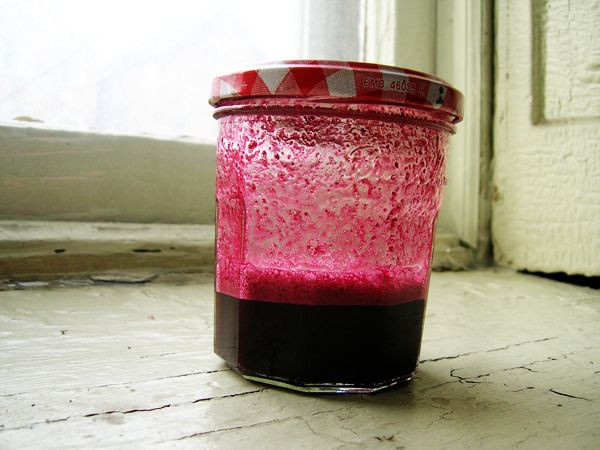Tart Cherry Juice Found To Cut Levels Of Uric Acid And Inflammation Biomarker In Blood

Drinking even small quantities of Montmorency tart cherry juice has been linked to decreased levels of uric acid in the blood along with a key biomarker for inflammation, known as C-reactive protein, according to a pair of new studies.
Cherries have been revered for their anti-inflammatory properties for years. Tart cherries, specifically, were declared in 2012 to have the highest anti-inflammatory content of any food. Prior research has found tart cherry juice can cut inflammation levels in lab rats by as much as 50 percent.
Full disclosure: The 2012 research and the current studies were all funded by the Cherry Marketing Institute, an organization designed to increase tart cherry consumption and promotion worldwide. However, at least in the current studies, the CMI alleges its support was purely financial; no members of the organization had any knowledge of the study design or analysis, or role in publishing the findings.
The good news is, the science is founded. Tart cherry juice contains high levels of melatonin and antioxidants, which support natural sleep function and reduced inflammation, as marked by C-reactive protein, which is produced in the liver and whose levels rise when inflammation is more widespread.
In the first of the two recent studies, scientists from Northumbria University in the UK gave 12 participants two doses of Montmorency tart cherry juice concentrate. The first dose contained about 1 ounce, or 30 milliliters, of the juice concentrate mixed with 100 milliliters of water or 2 ounces of juice concentrate mixed with 100 milliliters of water. Participants drank two doses, once in the morning and again before dinner, for two days.
Even with the small study covering a short time period, researchers found marked differences between the experimental and control groups. Irrespective of the dose, blood and urine samples revealed more uric acid was leaving the body and C-reactive protein levels were lower. This signaled a reduced risk for gout, a form of arthritis that can cause severe attacks of intense pain and swelling.
"We have been investigating Montmorency tart cherries for several years because they're a unique fruit with a high concentration of anthocyanins," said co-author Dr. Glyn Howatson in a statement.
The second study upheld the same results, with a bit of a nuance. Participants who ate 45 or 90 whole frozen cherries, or roughly equivalent to 8 ounces of juice, saw elevated capacity for antioxidants in the blood for the next 12 hours. The team also observed tart cherry anthocyanin metabolites in the blood and urine with both doses of the whole tart cherries.
Given the proof of concept, study author Dr. E. Mitchell Seymour says the effects could be even more long-lasting if the habit is continued, which the team intends to study moving forward. "Our observations were after a one-time consumption," Seymour said. "It is compelling to think what could occur with more regular consumption of tart cherries, and how that could translate into possible health benefits."
Sources: Bell P, Gaze D, Davison G, George T, Scotter M, Howatson G. Montmorency tart cherry (Prunus cerasus L.) concentrate lowers uric acid, independent of plasma cyanidin-3-O-glucosiderutinoside. Journal of Functional Foods. 2014.
Seymour E, Warber S, Kirakosyan A, et al. Anthocyanin pharmacokinetics and dose-dependent plasma antioxidant pharmacodynamics following whole tart cherry intake in healthy humans. Journal of Functional Foods. 2014.



























